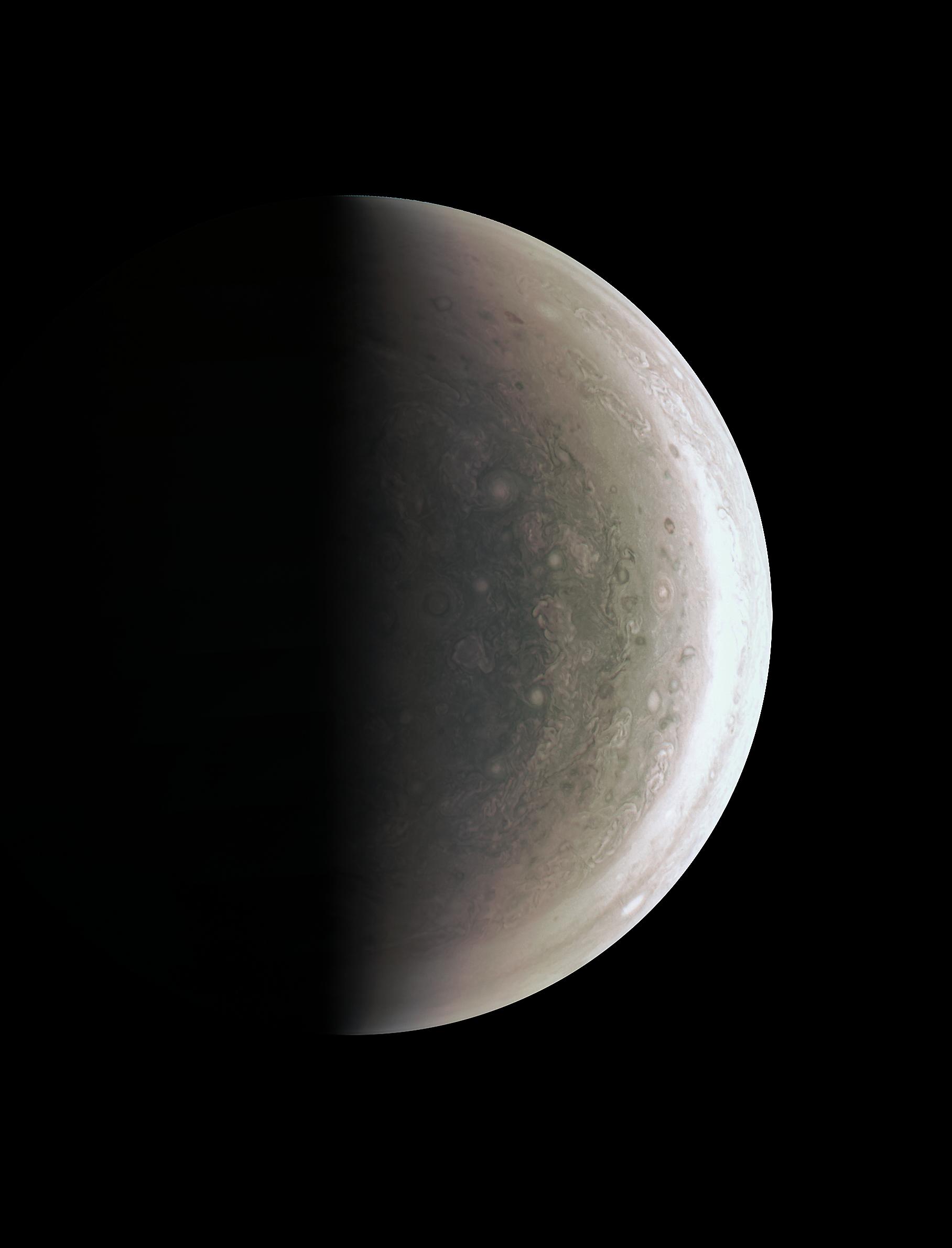On the one hand, it's hardly surprising that an enormous gas giant doesn't work the way we first thought it did. It's space. Conventional logic is usually wrong. On the other hand, it's still surprising. It's not like Jupiter is a complete unknown to us, with Galileo fulfilling the same role Cassini is currently (though not for much longer) performing around Saturn. It was a big flagship space probe that orbited Jupiter for nearly 8 years, and in doing so vastly expanded our knowledge of Jupiter and the Jovian system.
(Brief aside: Cassini and Galileo may be very similar space probes, but I don't think there's a question that Cassini was by far the more successful of the two. Galileo suffered several technical issues that hindered its abilities and orbited for 8 years, whereas Cassini has suffered no such problems and has orbited for 13 years.)
It's been nearly 14 years since Galileo took its final dive into Jupiter, and once again, a space probe orbits Jupiter. Juno is a space probe designed to learn more about Jupiter itself rather than its moons, and from polar orbit it has done a very good job of this. For one thing, the Jovian polar regions don't match the rest of the planet. You think of Jupiter, you see the red, brown, and white stripes, but in fact, the poles are mostly blue. And that's just an obvious thing we learned because we finally got a chance to look at Jupiter's poles (Jupiter has almost no tilt, so it was impossible to get an image of them without sending a probe into polar orbit).
Suffice to say, a gas giant that bears almost no resemblance to Earth has an atmosphere that operates in ways entirely different to our own. For one, the enormous Jovian auroras work in reverse, caused by electrons leaving the polar regions, rather than entering them as they do on Earth. It also appears that the sun is not the primary driver of weather on Jupiter, and once you drop below the upper atmosphere, things don't quiet down. The lower parts of the atmosphere are just as diverse as the upper parts. A big band of ammonia orbiting the equator was particularly interesting, as there is no good reason why it should be there at all.
Things don't get quieter even further down in Jupiter's central regions. There are noticeable fluctuations in Jupiter's gravitational and magnetic fields, indicating a non-uniform interior and deep convection within the planet. The article concludes with a quote that I find rather appropriate, both to this current situation and to astronomical science in general: "In hindsight, it’s hard to imagine why would we have ever thought it would be simple and boring." Indeed.


No comments:
Post a Comment